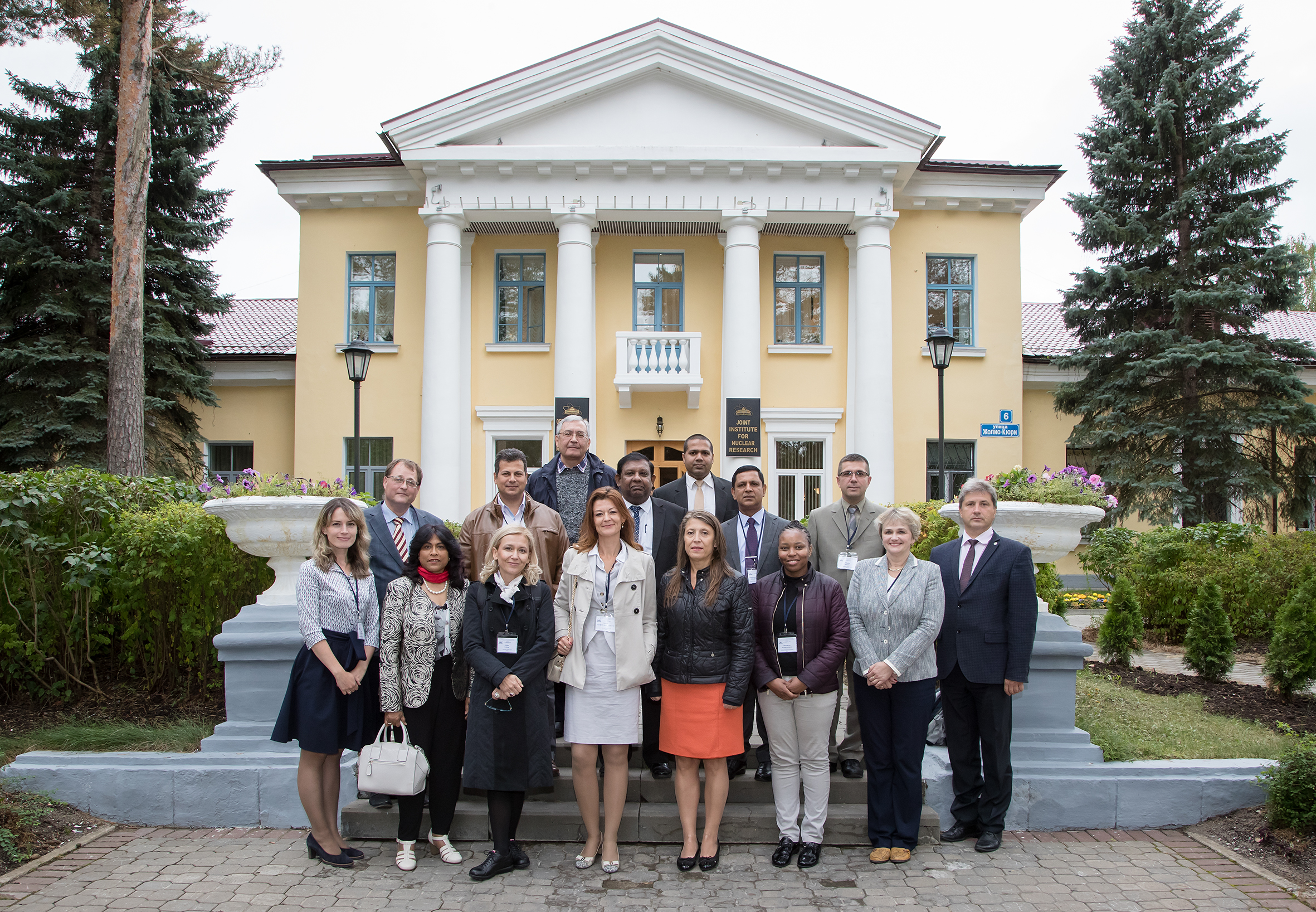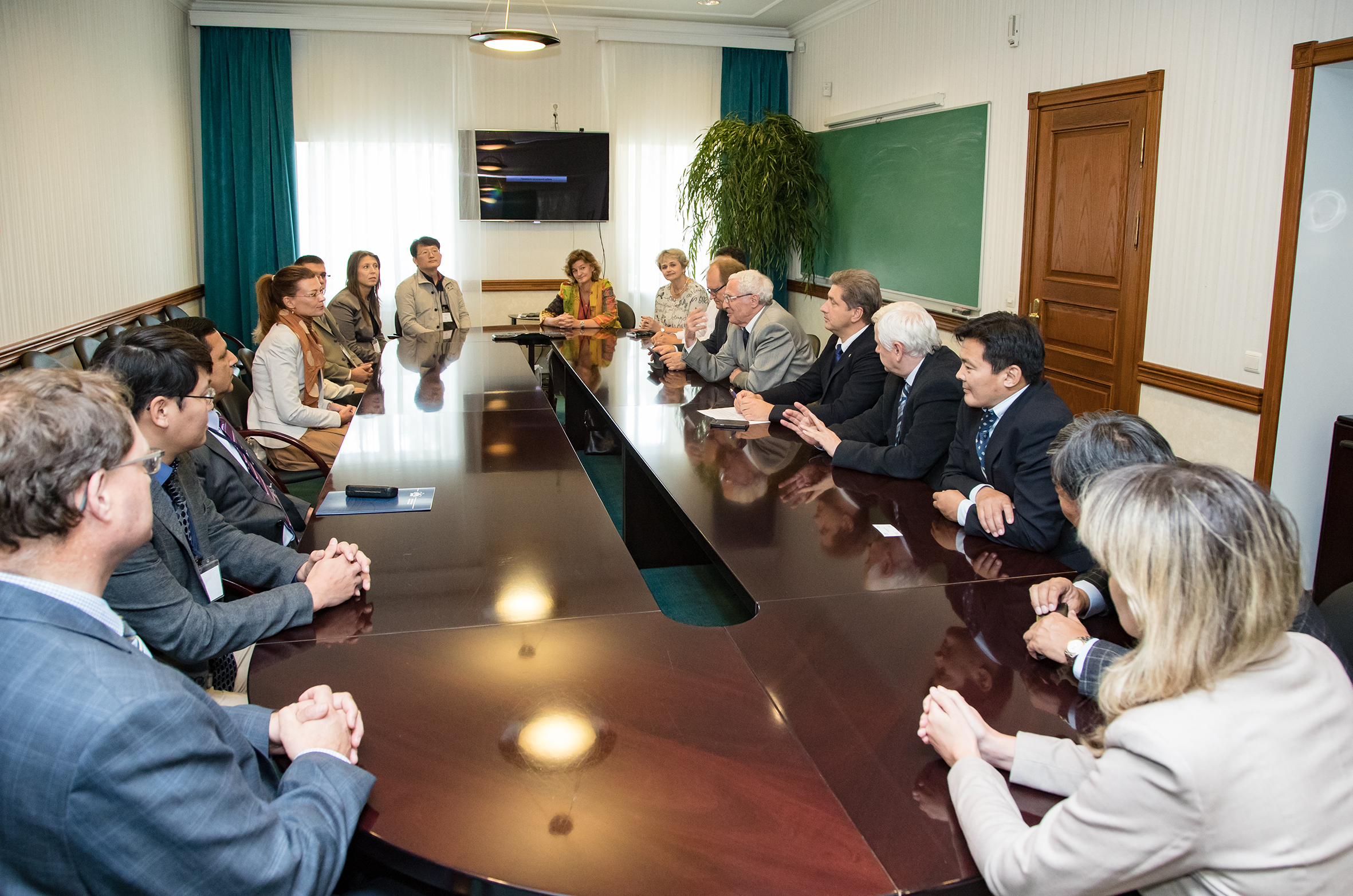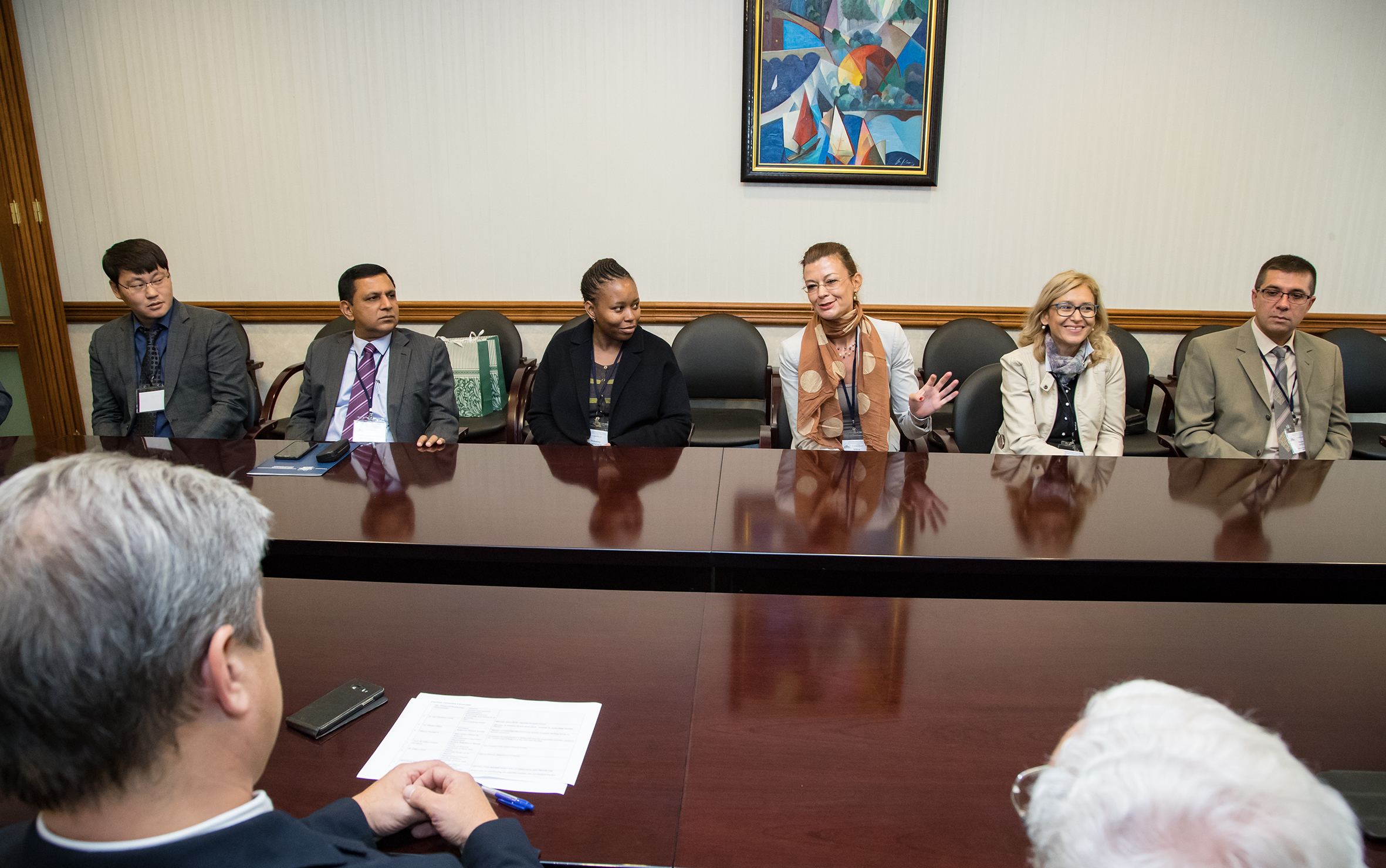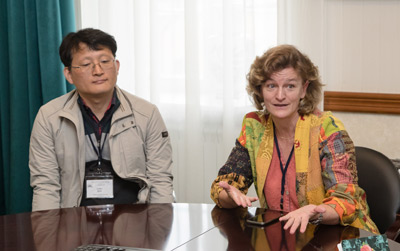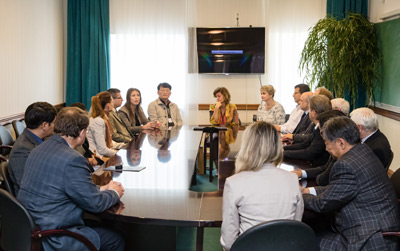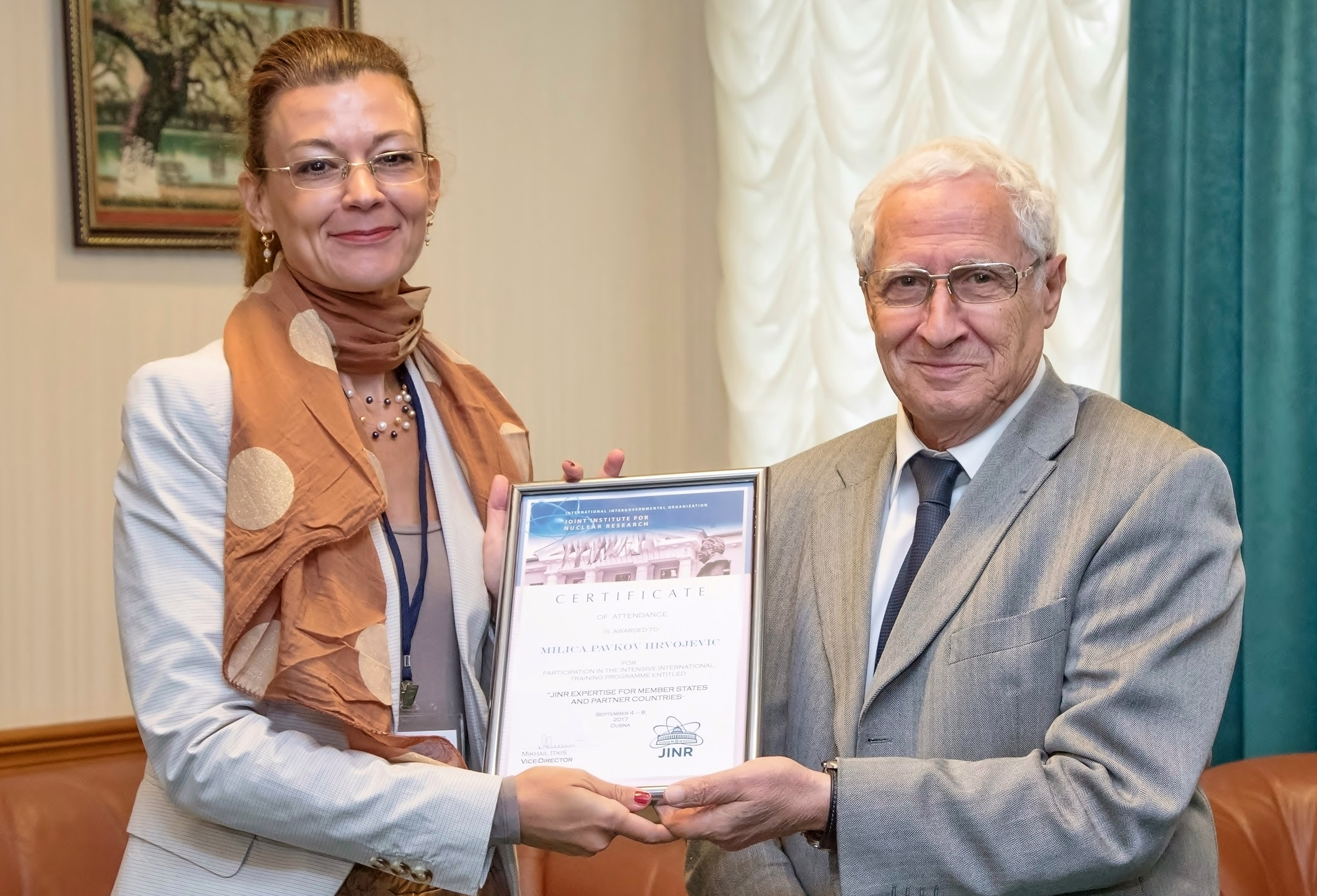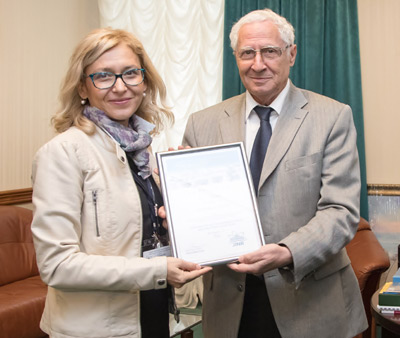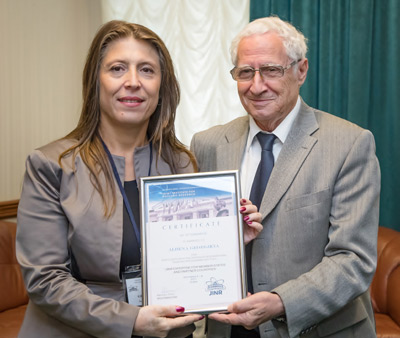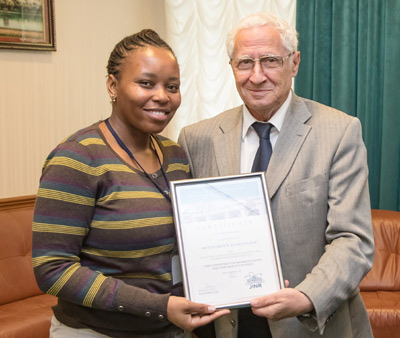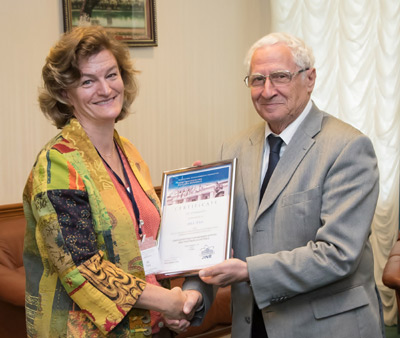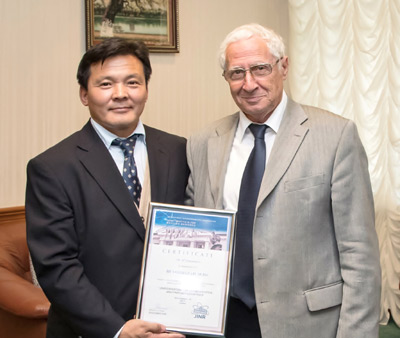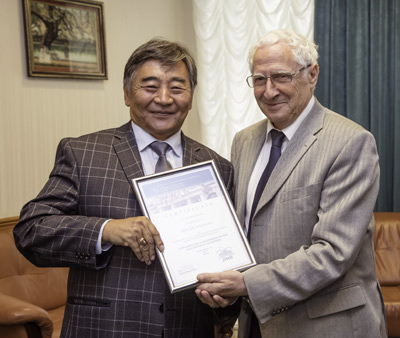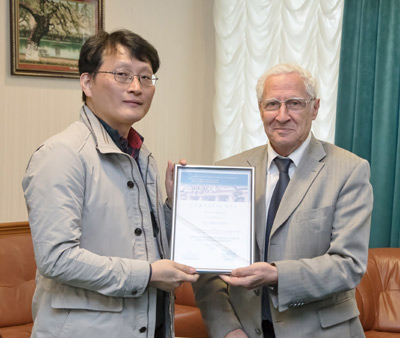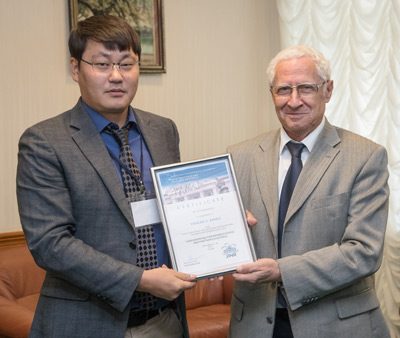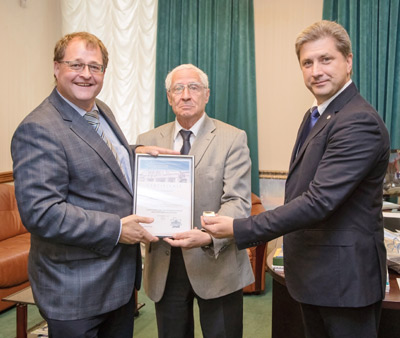The 3rd training programme “JINR Experience for Member States and Partner Countries”
Education, 12 September 2017
On 4 – 8 September 2017, JINR held the 3rd training programme for senior officials of science and international scientific cooperation “JINR Experience for Member States and Partner Countries” which was attended by representatives from Bulgaria, Germany, Mongolia, the Republic of Korea, Serbia, South Africa and Sri Lanka.
The training programme was built on the same model as the previous ones in April and June 2017, but it included some additional features. In particular, participants of the training programme visited a pavilion of the simulation of Martian soil, where installation of the artistic and informational part had been just completed. As in previous periods, the training programme provided comprehensive lectures and presentations about the principles of organization and the activities of JINR, visits to the facilities of the JINR research infrastructure, acquaintance with the major directions and the results obtained by all the seven JINR laboratories and the UC, as well as meetings with members of the JINR Directorate, leaders and leading specialists of the Institute.
In the frames of the training programme, a visit to JINR of State Minister of Science, Technology and Research of Sri Lanka Mr. Lakshman Senewiratne was held. A meeting of the organizing committee of the conference “Modern Trends in Natural Sciences and Advanced Technologies on Science Education”, which will be held in Ulan Bator in late August 2018, was held on the sidelines of the training. The work of the organizing committee was attended by a delegation from the Incheon National University of the Republic of Korea headed by the Dean of the Office of International Affairs of the University Dr. Jill Tao. The delegation arrived to JINR for a return visit. A Mongolian delegation headed by Secretary-General of the Mongolian Academy of Sciences Dr. Budeebazar Avid also participated in the work of the organizing committee.
On the concluding day of the training programme, the participants gathered at the JINR Directorate for a round table, where the leadership of the Institute was represented by JINR Vice-Directors Mikhail Itkis and Richard Lednický, JINR Chief Scientific Secretary Alexander Sorin, Advisor to the JINR Directorate Marina Tumanova, Head of JINR University Centre Stanislav Pakuliak and Head of the JINR International Cooperation Department Dmitry Kamanin, who moderated the meeting. The parties discussed the training programme and the meeting was finished with the presentation of diplomas to participants of the training.
Dr. Mladen Mitev, President of the Bulgarian Nuclear Society:
I am very happy to have had this opportunity to visit the Joint Institute for Nuclear Research. This visit is very important, and actually it is very useful for my activities as President of the Bulgarian Nuclear Society because in our day-to-day work we often forget what are the main goals of the nuclear physics and we should be reminded what are the findings over the horizon. The other important thing that should be emphasized that the existence of such joint scientific organizations is absolutely necessary because they can bring together funds and efforts. I think there is no other way to move forward the nuclear science instead of making it together by many nations with joint efforts. I would like to thank JINR for this interesting training that was very well organized.
Prof. Dr Milica Pavkov Hrvojevic, Vice President of the Serbian Physical Society, Dean of the Faculty of Sciences, University of Novy Sad:
First of all, I have to say that I am impressed with the facilities of the Joint institute. I was just hearing about Dubna, but my personal impression is that Dubna is becoming a modern European research centre and you are taking big steps forward. JINR and the University of Novi Sad have already established cooperation in the fields of nuclear and theoretical physics, and the practical result of participation in this training for me is the birth of ideas to organize joint experiments.
Photos by Igor Lapenko
